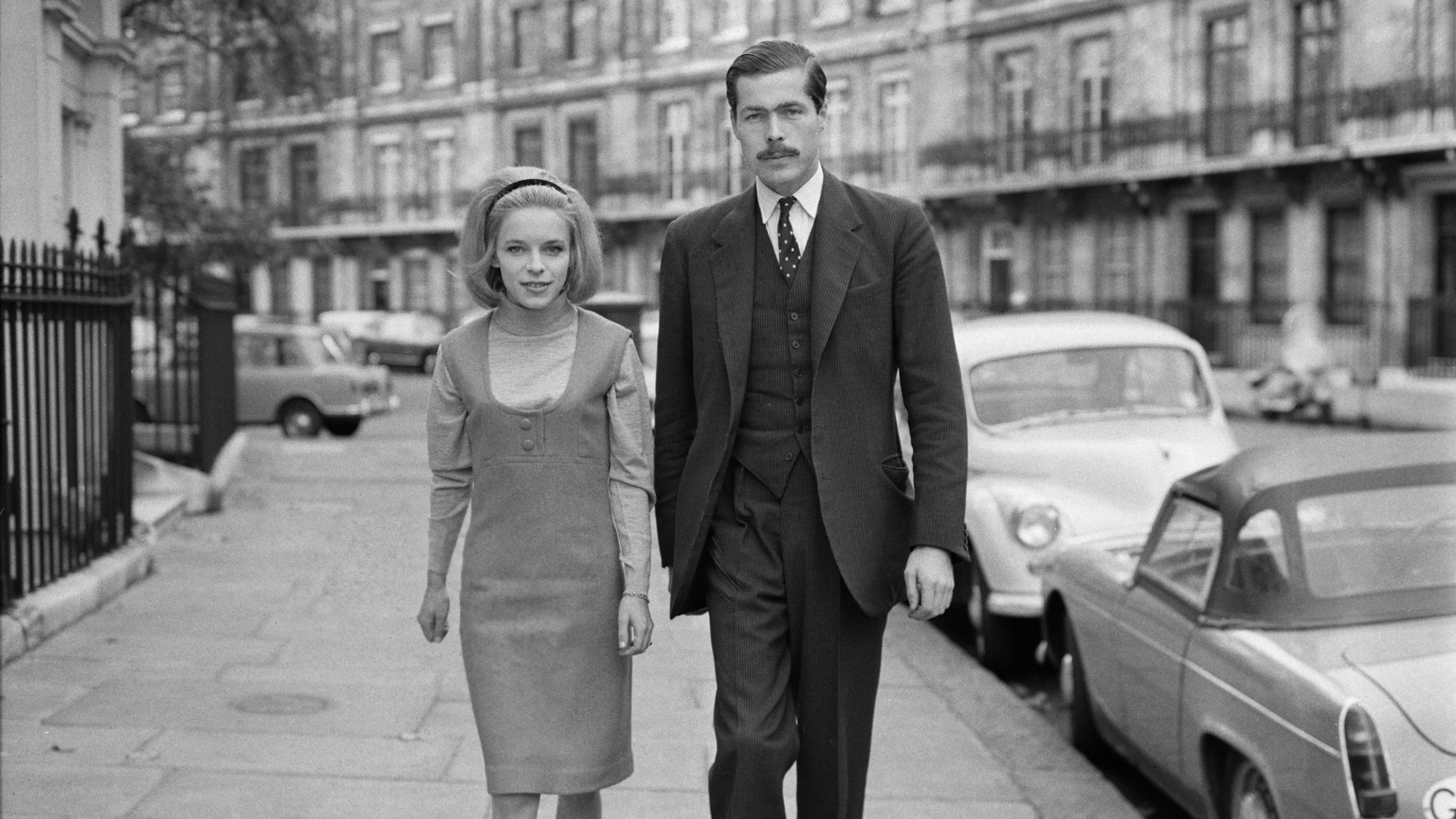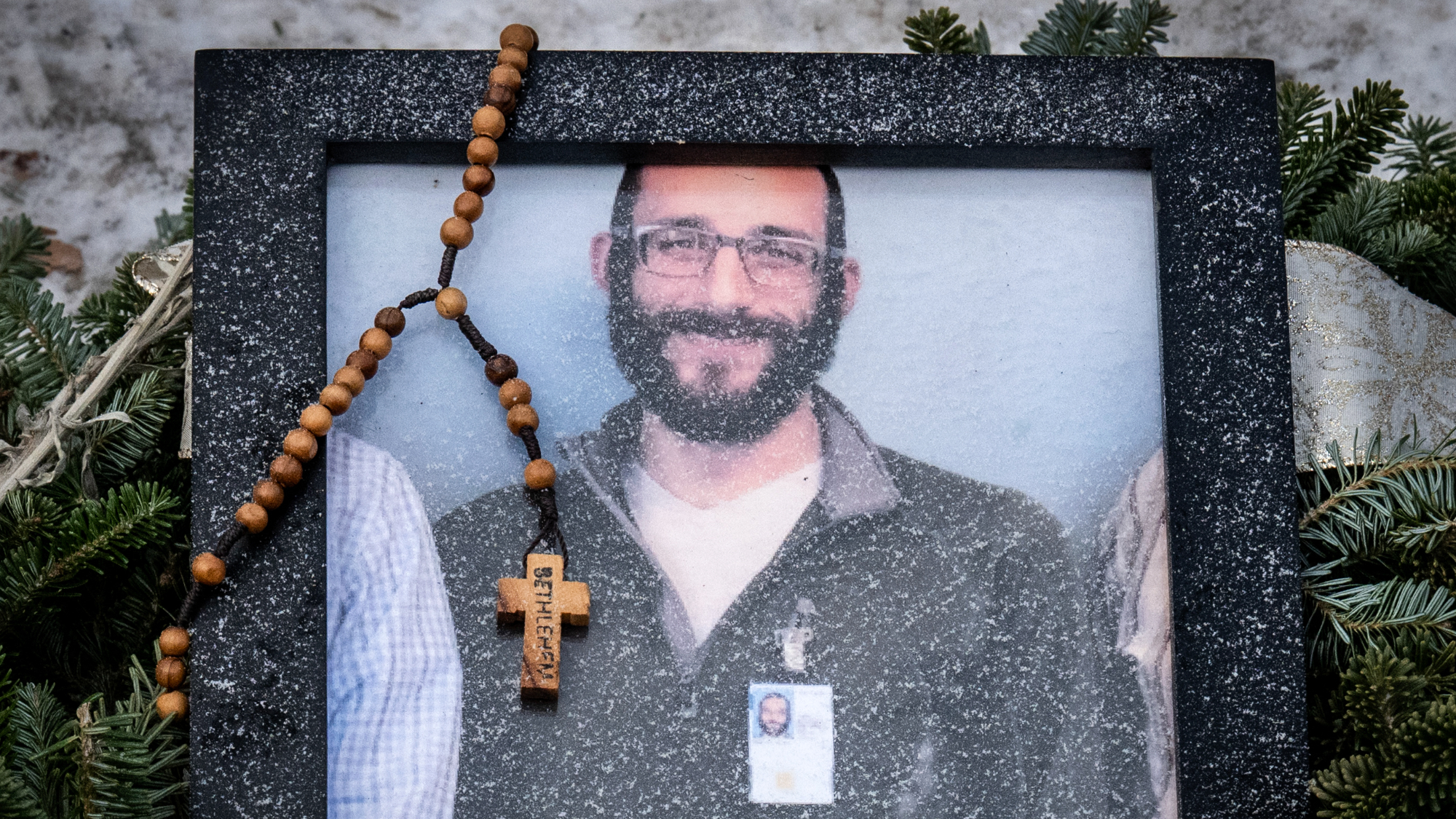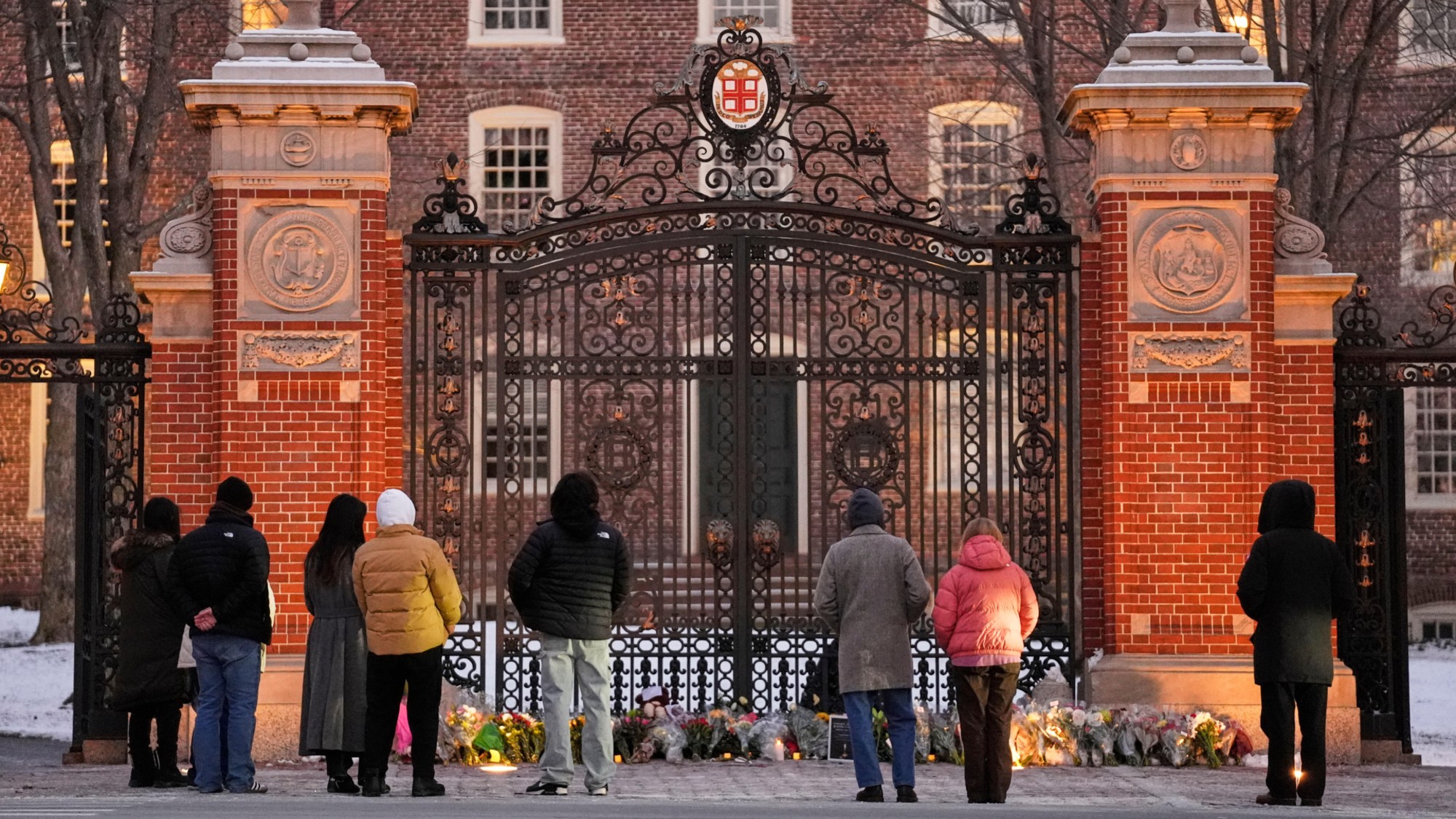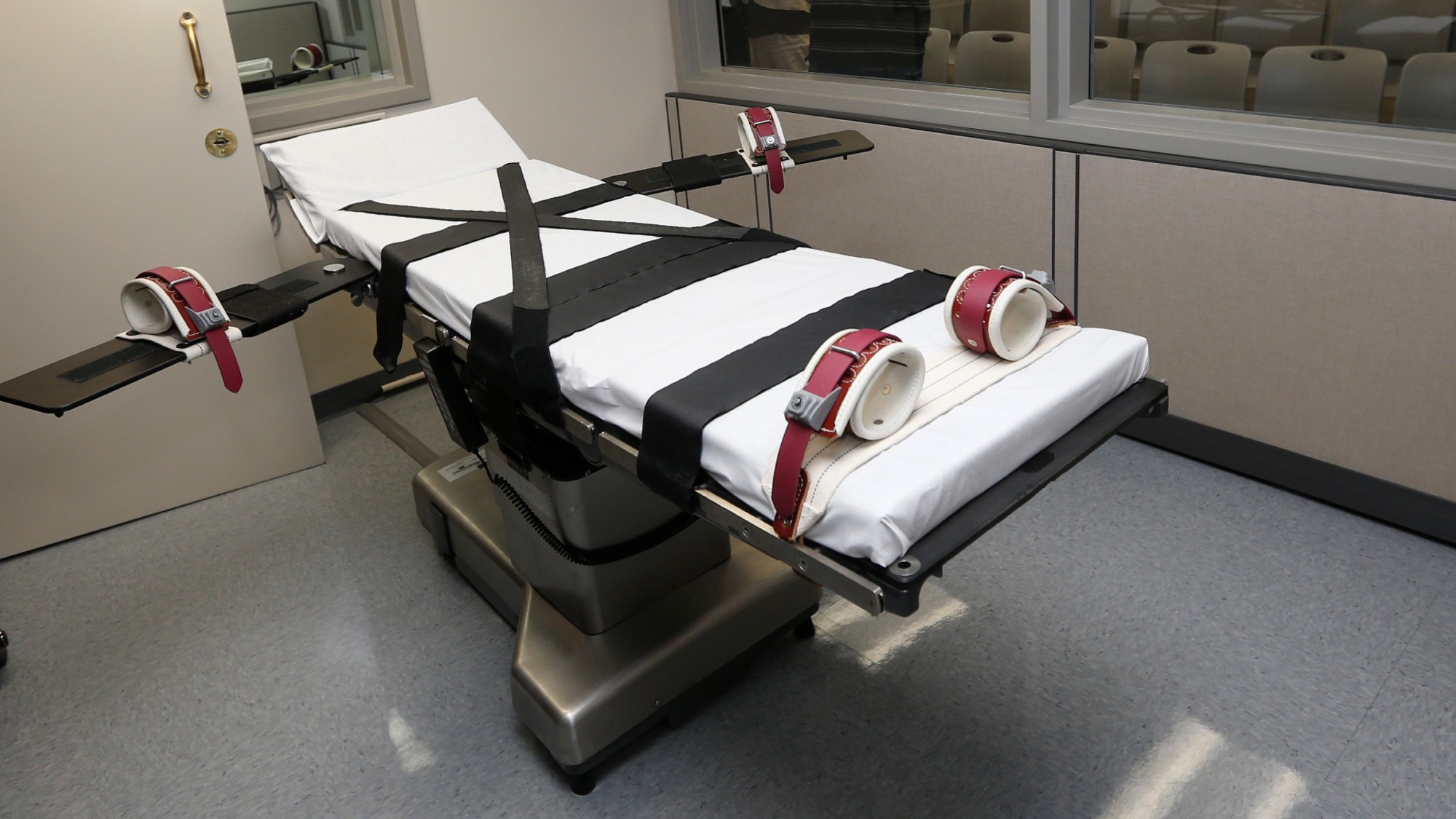Lord Lucan: what happened to suspected aristocratic murderer?
Fifty years ago this week, on 7 November 1974, Lord Lucan disappeared following a murder at his estranged wife's home

A free daily email with the biggest news stories of the day – and the best features from TheWeek.com
You are now subscribed
Your newsletter sign-up was successful
Fifty years ago, the wife of Lord Lucan stumbled into a London pub drenched in blood, screaming that her estranged husband had murdered their nanny.
But Richard John Bingham, the seventh Earl of Lucan, never stood trial for the brutal killing of 29-year-old Sandra Rivett. The aristocratic gambler fled London and was never seen again.
The evidence against him is damning, but the "hugely tantalising areas of doubt" still fascinate the public to this day.
The Week
Escape your echo chamber. Get the facts behind the news, plus analysis from multiple perspectives.

Sign up for The Week's Free Newsletters
From our morning news briefing to a weekly Good News Newsletter, get the best of The Week delivered directly to your inbox.
From our morning news briefing to a weekly Good News Newsletter, get the best of The Week delivered directly to your inbox.
Who was Lord Lucan?
Richard John Bingham was the seventh Earl of Lucan, the scion of an Anglo-Irish aristocratic family whose great-great-grandfather ordered the Charge of the Light Brigade, and whose father was a socialist peer who served in Clement Atlee's government.
Born in 1934, Lucan went to Eton, did National Service in the Coldstream Guards, and briefly worked at Brandt's merchant bank in London; he failed to progress there, and a spectacular win at chemin de fer (worth £26,000, when his annual salary was only £500) convinced him to become a professional gambler. He did not thrive: his nickname, "Lucky", was ironic.
Even so, he lived a ritzy lifestyle, driving powerboats, racing bobsleighs and owning race horses; his suave demeanour led to him apparently being considered for the screen role of James Bond.
How did he become estranged from his wife?
Although he was a snob who reportedly refused to talk to people who "didn't have proper shoelaces", Lucan had married a middle-class woman, Veronica Duncan, in 1963; she was the sister-in-law of his friend Bill Shand-Kydd. Soon after, his father died and he succeeded to the earldom. The couple had three children, but Lady Lucan suffered from postnatal depression and the marriage gradually fell apart.
A free daily email with the biggest news stories of the day – and the best features from TheWeek.com
Lucan spent much of his life at the tables at the Clermont Club in Berkeley Square, owned by his friend John Aspinall, running up large debts and drinking heavily, while his wife sat in the area known as the "widow's bench".
He tried to have her committed to a psychiatric hospital, and they separated in 1973. A bitter custody battle ensued; Lucan became obsessed with the idea that she was incapable of raising his children, but he lost the court case, running up huge legal fees in the process.
What happened on the night of Thursday 7 October 1974?
At around 9:45pm, Lady Lucan stumbled into the Plumber's Arms on Lower Belgrave Street, where she lived, drenched in blood and screaming: "Help me, help me, help me! I have just escaped from being murdered! He's in the house! He's murdered the nanny!"
At around 9pm, she had asked her nanny, Sandra Rivett, 29, to make a cup of tea. Rivett had gone down to the basement kitchen. When she did not reappear, Lady Lucan had gone down to investigate, and had been attacked by a man whose voice she said she recognised as her husband's. She had fought with him, and convinced him to stop the attack; she said that he admitted to having killed Rivett (by mistake). After he had taken her up to her bedroom, she managed to escape. When the police arrived, they found Rivett's body in a sack, with a bloody lead pipe that had been used to beat her to death.
What did Lucan do then?
He left London and arrived at his friend Ian Maxwell-Scott's home, in Uckfield in Sussex, at 11:30pm. Maxwell-Scott was away, but his wife, Susan, was there. To her, and in two letters that he wrote to friends, he gave his version of events. He said he had had a "traumatic night of unbelievable coincidence": he had been passing the family house and had seen an intruder struggling with his wife in the basement. He had run in to help, and the man had run off.
Realising that his wife would accuse him of being responsible and that the evidence looked damning, he said he had decided to "lie doggo for a while". He left Uckfield in the early hours of Friday, his last confirmed sighting. The car he was using was found near the harbour in Newhaven, 16 miles away; it had been parked between 5am and 8am.
Is the evidence against him damning?
Very: after just 31 minutes, the jury at the coroner's court in June 1975 found that Lucan had murdered Rivett. This was based on Lady Lucan's testimony, and on a wealth of other details. The car Lucan was using, a Ford Corsair, was found splattered with blood types matching both Rivett and Lady Lucan, along with another length of pipe, similar to the murder weapon.
There was also much circumstantial evidence that Lucan had planned to kill his wife. He had borrowed a car, perhaps because it was less conspicuous than his Mercedes, and had found out from his daughter that the nanny's night off was on Thursdays, though she in fact swapped her days that week. He knew that his wife made a cup of tea at 9pm; a light bulb had been removed in the basement.
Lucan's friend Greville Howard later told police Lucan had told him that killing his wife would save him from bankruptcy, because he would reclaim his house, and that he could dump her body in the Solent; she "would never be found".
So what did happen to him?
Roy Ranson, the policeman who led the murder inquiry, became convinced that Lord Lucan had fled to Africa. Some speculated that the peer's wealthy friends, dubbed "the Clermont set", had helped spirit him away, and perhaps killed him because he had become an embarrassment, or at least encouraged him to shoot himself before his body was fed to tigers owned by John Aspinall at Howletts, his private zoo in Kent. ("The last I heard, he was being fed to the tigers at my son's zoo," said Aspinall's mother, Lady Osborne.)
The most plausible theory remains that he died by suicide in 1974. Lady Lucan believed that he took a ferry from Newhaven and threw himself into the Channel.
What explains the fascination?
"The facts are just enough to make a narrative while leaving hugely tantalising areas of doubt," suggests the author Rosemary Hill. The Times's obituary – published in 2016, after Lord Lucan's death certificate was finally issued – described the case as a "national game of Cluedo".
But there was, of course, a real human cost. "Out of politeness, one says it's very hard on the nanny," Aspinall remarked at the time, "although I don't, of course, feel a personal sense of loss." Lady Lucan was estranged from her children and lived as a recluse, before killing herself in 2017.
An elusive peer
The first "sighting" of Lord Lucan was in Melbourne, Australia in December 1974; a bank clerk reported a suspicious British man that he thought was the missing peer. Police arrested him: it was actually John Stonehouse, the Labour MP who had staged his own death in Miami to start a new life.
Subsequently, sightings of Lucan were reported in France, Guam, Mozambique, India and New Zealand. He has been spotted at a colony of former Nazis in Paraguay, at a sheep station in the Australian outback, backpacking on Mount Etna and working as a waiter in San Francisco.
In 2003, a retired detective claimed to have tracked Lucan to Goa. In fact it was "Jungle Barry" Halpin, a folk singer from St Helens. In 2012, the earl was reported to be drinking in a bar in Botswana. In 2022, he was said to be living in a Buddhist community in Australia.
Lord Lucan stories became a Fleet Street staple: the late Daily Mirror journalist Garth Gibbs said that his "most spectacular success" in journalism was not finding Lord Lucan: "I have successfully not found him in more exotic spots than anybody else."
In 2016, his son George Bingham said he believed his father had been dead since 1974, and that it was time to find "another Loch Ness monster out there".
-
 Hotel Sacher Wien: Vienna’s grandest hotel is fit for royalty
Hotel Sacher Wien: Vienna’s grandest hotel is fit for royaltyThe Week Recommends The five-star birthplace of the famous Sachertorte chocolate cake is celebrating its 150th anniversary
-
 Where to begin with Portuguese wines
Where to begin with Portuguese winesThe Week Recommends Indulge in some delicious blends to celebrate the end of Dry January
-
 Climate change has reduced US salaries
Climate change has reduced US salariesUnder the radar Elevated temperatures are capable of affecting the entire economy
-
 Ex-Illinois deputy gets 20 years for Massey murder
Ex-Illinois deputy gets 20 years for Massey murderSpeed Read Sean Grayson was sentenced for the 2024 killing of Sonya Massey
-
 Why have homicide rates reportedly plummeted in the last year?
Why have homicide rates reportedly plummeted in the last year?Today’s Big Question There could be more to the story than politics
-
 Demands for accountability mount in Alex Pretti killing
Demands for accountability mount in Alex Pretti killingSpeed Read Pretti was shot numerous times by an ICE agent in Minneapolis
-
 FBI bars Minnesota from ICE killing investigation
FBI bars Minnesota from ICE killing investigationSpeed Read The FBI had initially agreed to work with local officials
-
 ICE kills woman during Minneapolis protest
ICE kills woman during Minneapolis protestSpeed Read The 37-year-old woman appeared to be driving away when she was shot
-
 Campus security is under scrutiny again after the Brown shooting
Campus security is under scrutiny again after the Brown shootingTalking Points Questions surround a federal law called the Clery Act
-
 How the Bondi massacre unfolded
How the Bondi massacre unfoldedIn Depth Deadly terrorist attack during Hanukkah celebration in Sydney prompts review of Australia’s gun control laws and reckoning over global rise in antisemitism
-
 Executions are on the rise in the US after years of decline
Executions are on the rise in the US after years of declineThe Explainer This year has brought the highest number of executions in a decade